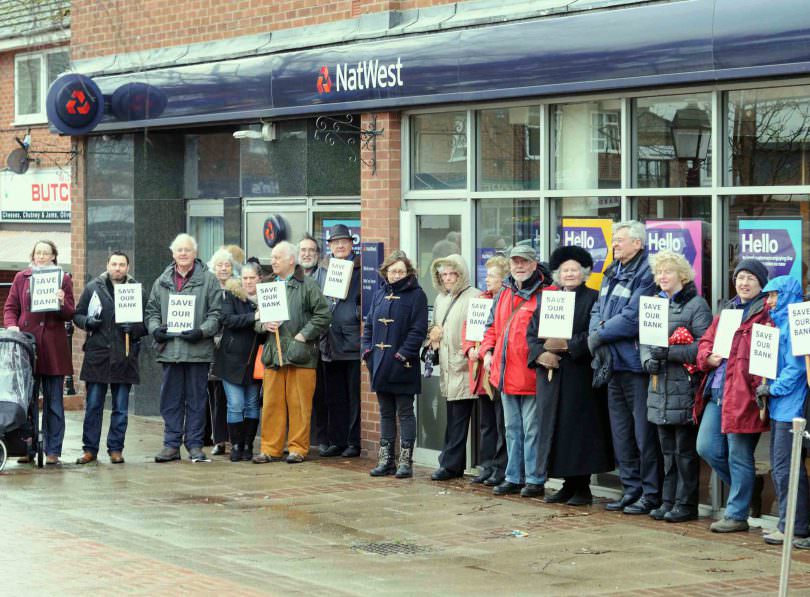The basic rule on state intervention in business is that there has to be a market failure. This is when commercial concerns have no interest in the investment needed to supply a service which the Government deems vital.
It’s the defining line between state ownership of industry that competes with commercial concerns – the old failed British Leyland model – and interventions that save vital economic assets for a local community, such as the Scottish Government stepping up to save Prestwick Airport.
Once a state-owned business becomes highly profitable and returns revenue to the Government, it’s claimed that there is no need for government ownership and the asset is usually sold off.
This is not always a good idea though, as it can simply restart the downward spiral to market failure and very few government assets are ever sold at a price that makes it a good deal. The Royal Mail sell-off being a case in point.
So far the Scottish Government has a pretty good record when it comes to intervening to save jobs. The SNP-led government has clearly become the most successful interventionist government in this respect.
The Scottish Government stepped in to save BiFab, previously they rescued Prestwick Airport, helped save Glasgow’s last shipyard at Fergusons, Scotland’s last steel mill Dalzell, and the UK’s last aluminium plant in Fort William. Currently they are fighting to save 450 jobs at Pinneys of Scotland, threatened with closure by their parent company Young’s. As the campaign to save Pinneys gathers momentum the Scottish Government has stated it is “absolutely committed” to finding a positive outcome.
Sanjeev Gupta – whose GFG Alliance secured the future of both the Dalzell and Fort William plants even said “in our experience around the world we have yet to encounter any government as actively supportive and positive as the Scottish Government”.
Larger employers, especially in declining industries and in rural areas, are vital to local economies. If you live in a city and want to understand the equivalent loss of 450 jobs in the Annan area, multiply it by 100 at least and ask what would 45,000 to 60,000 jobs lost in one go feel like in your city?
Another threat to local businesses, and specifically in rural areas, is calling out for an intervention from the Scottish Government. Responding to a government call for evidence into the impact of bank branch closures, Business for Scotland conducted a survey that highlights significant market failures in the provision of local banking in Scotland. We found that businesses and local economies are being hammered by persistent bank closures across Scotland.
We thought we would hear a lot of stories from rural businesses about the last branch in town closing – and we did – but we didn’t anticipate that the issues were also the same for cash-handling businesses in rural and urban areas right across Scotland. Overall 47 per cent of business owners predicted that bank closures would have a negative impact on their business. Consulting and services business, architects and accountants, etc, didn’t have much of a problem with having fewer branches but cash-handling, smaller and retail businesses did almost unanimously. Almost 21 per cent of respondents said that they now had to travel an additional 15 minutes to one hour to access banking facilities, whilst nine per cent (mostly in rural areas) said that the closures had extended their travels by an additional one to two hours.
Tourism-related business, hospitality, gift shops and local shops are vital to Scotland’s rural tourism trade. They need cash for their tills, and they need somewhere to bank that cash. Rural areas and smaller towns experience a wider societal impact from the withdrawal of banking services that goes deeper than the much-reported difficulties of personal and often older generation personal banking customers. A lack of banking facilities and easily accessible banking advice are barriers to small business startups and continued success. How sustainable are small, rural communities when the last bank, last shop, last petrol station and even the last pub are set for closure? Rural businesses in particular don’t operate in isolation, they operate in interconnected rural clusters each providing employment and therefore customers for one another.
Our members would like to see an innovative response from the now not-on-the-high-street banks, such as banking hubs and sharing premises, rather than the current closure strategy which is harming local businesses, local economies, and making it even more challenging for startup entrepreneurs to get their businesses off the ground. Personally I think that’s wishful thinking – the bigger the business the less likely they are to have a social conscience or a link to the local communities they operate in. Corporate detachment is a big problem. When Pinneys was founded they were an Annan business, when it became part of Uniq then Young’s it became just a number on a spreadsheet on a computer hundreds of miles away.
The banks are a case study in corporate detachment, and they will not want brand confusion from sharing the same branch, so a more radical government intervention may be required. A national retail bank owned and run by the Scottish Government responding to a clear market failure would save local communities, help the SME business sector and boost government revenues in the medium term. Given that banks are also closing city branches, public bank operations need not be limited to rural areas.
There are other potential answers to boosting local communities that become viable once you have a public branch network that includes a publicly owned Scottish digital currency and the encouragement of local currencies – as has been successfully piloted in many European cities and rural areas, especially in Germany.
Ask yourself these questions, if the banks are failing the market and the Scottish Government were to create a Scottish Citizens Bank, would you use it? If they issued a digital currency and underwrote local currencies would you be happy to trade in those? If they offered business and personal loans, would you be happier than borrowing only from the detached, distant and disinterested corporate banks?









[…] See also: BfS survey highlights significant market failures in the provision of local banking in Scotland The case for Scottish Government intervention as banks fail local communities […]
Been saying it for a long time now. We actualy have a ready made retail bank ( with a few adjustments) It is called “The post office”. Yes I now it is a reserved issue but I am sure that could be overcome if there was a will.
Most definitely YES! As would many others who have talked of this.
I think it would be great if there was a Scottish Citizens Bank and I would definitely use it. However, I think I would feel best about that if the bank was constructed in such a way that it’s savers were in control of how the bank operated including where/how profit was spent. I mean it would be best if some percentage of the profit were made available to Scottish small and medium businesses at good rates. Really it would need to be set up to benefit Scotland, the commonweal, and control rested with its savers. For the life of me I can’t understand why the SNP (and likely the Greens too) don’t set up such a bank — my feeling is that it would be popular and people would use it in preference to using high street commercial banks.
As for publicly owned digital currency — I’m an oldie and likely would never use it but I can’t think of an objection to a publicly owned Scottish digital currency being available. I think it would likely be cool among the younger Scots to use it.
For local currencies, well why not. I can’t think of a use for them so maybe you need to write an article on the benefits/deficits of local currencies to educate me (and others).
In all I really like the general tack of your suggestions. Be experimental, and definitely break the back of the too-big-to-fail corporate banks, which privatise the profits and, via having governments in their pockets, socialise the loses. Anything that would help to achieve that is definitely the way to go. We need to break the power of the big banks — that’s an absolute must.
In West Lothian, where I stay, we do have a Credit Union which works pretty well for folks looking for cheap(ish) loans. For several years I use to have a few thousand deposited in the Union. That was my nest-egg for unexpected financial emergencies. Even though the money, for most of the time it was there, didn’t get interested paid to it I was happy to just have the money there to help local folks that wanted to get loans. So I had the money there for several years and then the Union started to charge folks an annual fee for having money deposited in the Union — in effect, the money was now attracting negative interest. I wasn’t happy with that so I withdrew my deposit and explained to the staff why I kept the money there (help others) and why I was withdrawing it (charged for keeping my nest-egg there). The counter staff were sympathetic but just said they don’t make the rules. Ah well. I have just discovered that it looks like that situation may have changed so I’ll check on Monday and if it has I’ll put my nest-egg back there. Things like that need to be avoided in the kind of Scottish Citizens Bank you envisage.
P.S. As I’m writing I would just like to say that I’ve read your blog for a couple of years now and have to say I enjoy it, and most of your thinking, a lot. Surprises me, being somewhat of a Socialist ilk, that I would find the blog of a businessman enjoyable and educational, at times very educational. You constantly surprise me, in a good way. Keep up your good work Gordon!